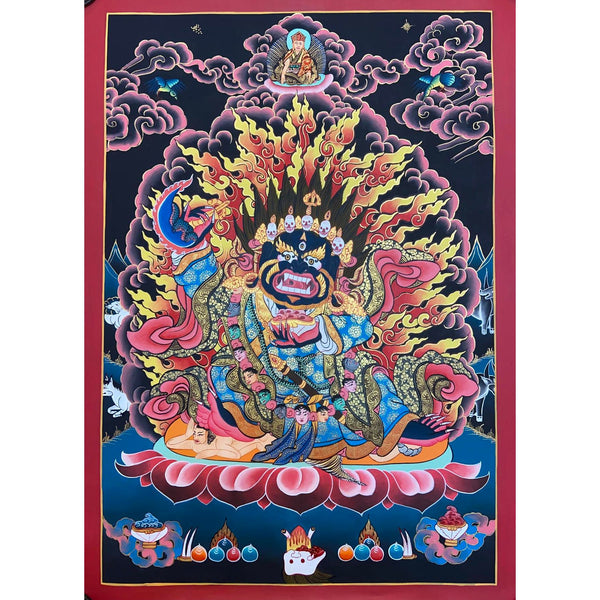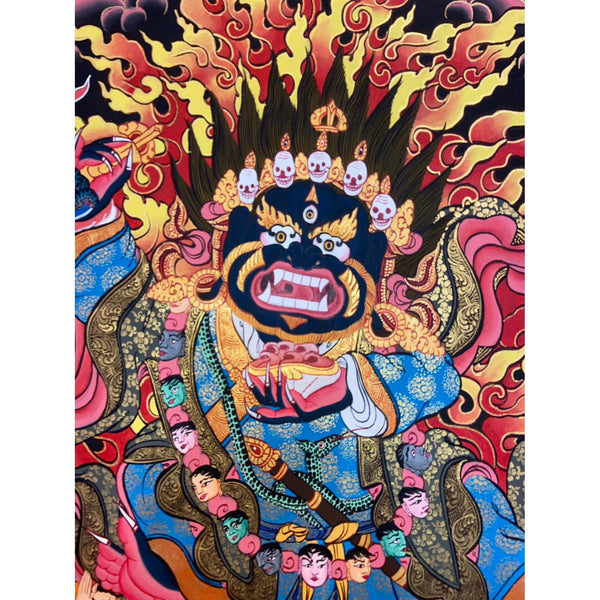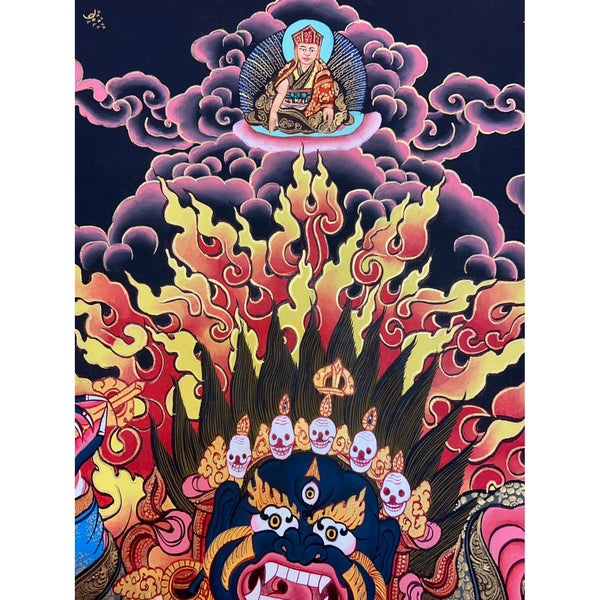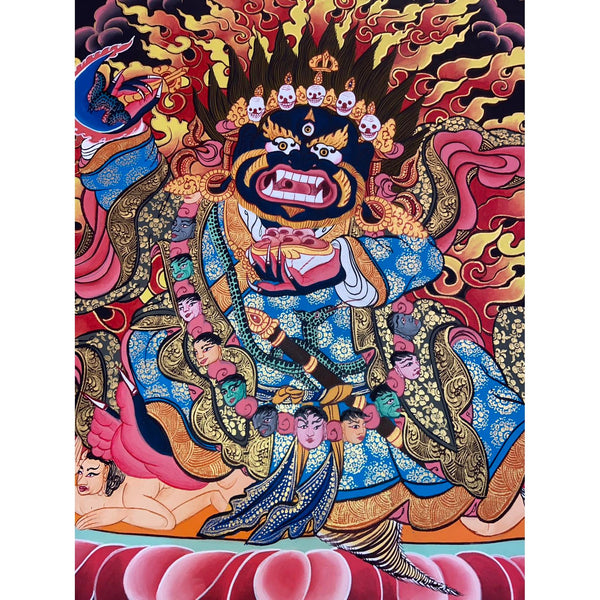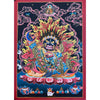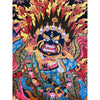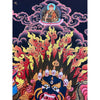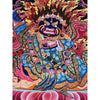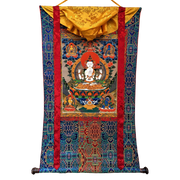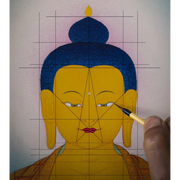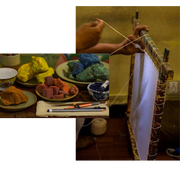Mahakala Bernagchen Thangka
EASTER SALE
Get it between - .

Mahakala Bernagchen – The Protector of the Karma Kagyu Lineage
This 100% hand-drawn Thangka, created in the Kathmandu Valley of Nepal, depicts Mahakala Bernagchen, one of the most revered protectors of the Karma Kagyu lineage in Tibetan Buddhism. This stunning masterpiece, made with dust of gold and Tibetan colors, can serve as a powerful spiritual tool or a striking centerpiece for your home or office. It is ideal for enhancing the energy of your altar, promoting emotional healing, and attracting benevolent forces of Tibetan Buddhist art.
Specifications
- Dimensions: 66 x 46 cm
- Materials: Dust of Gold With Tibetan Colors mixed with Hide Glue
- Canvas: Organic Cotton
- Hand Painted: In Nepal by skilled artisans
About Mahakala Bernagchen
Mahakala Bernagchen is a fierce and protective deity in Tibetan Buddhism, closely associated with the Karma Kagyu tradition. His name, meaning “The Black Cloak,” was introduced into the tradition by the 2nd Karmapa, Karma Pakshi (1206-1283 CE), who recognized the deity as a guardian and protector of the Karmapas. Bernagchen is part of the Terma Tradition, a practice that originated from the Nyima (Nyingma) school of Tibetan Buddhism, and is considered an important figure for the preservation of the Karma Kagyu teachings.
Mahakala Bernagchen is depicted with two arms, wearing a crown of five skulls that represent the transformation of the five poisons of delusion—lust, hatred, ignorance, pride, and jealousy—into the wisdom of the five Buddhas. He holds a flaying knife in his right hand with a vajra handle, symbolizing the severance of ego, attachment, and clinging. His left hand holds a kapala filled with blood, representing the subjugation of evil.
This form of Mahakala is also shown wearing a tiger skin, signifying the purification of desires, and has three eyes, which represent his deep understanding of the past, present, and future. The blazing fire in the background reflects his fierceness and power to protect the teachings of the Buddha. His two feet stand firm, symbolizing the wisdom and method needed to navigate the path of liberation.
While Mahakala appears ferocious, he is ultimately a manifestation of Avalokiteshvara, the Bodhisattva of compassion, and his actions are rooted in the compassionate intention to help sentient beings overcome suffering and attain enlightenment.
Key Benefits
- Protector of the Lineage: Safeguards the Karma Kagyu lineage and the teachings of the Karmapas.
- Spiritual Power: A powerful deity that cuts through attachment, ego, and delusions, enhancing spiritual growth.
- Symbol of Compassion: Represents the wisdom and compassion of Avalokiteshvara in a fierce and protective form.
- Artistic Mastery: An exquisite work of art made with traditional Tibetan techniques that brings blessings and positive energy.
A Spiritual Guardian for Your Practice
This Mahakala Bernagchen Thangka is not only a work of art but a spiritual guardian, ideal for your meditation and prayer space. Whether hung in your home or office, it invokes protection, wisdom, and compassion, helping you overcome obstacles and deepen your spiritual path.
You can find answers to common questions on our FAQ page here.
View all our shop reviews at reviews page here.

